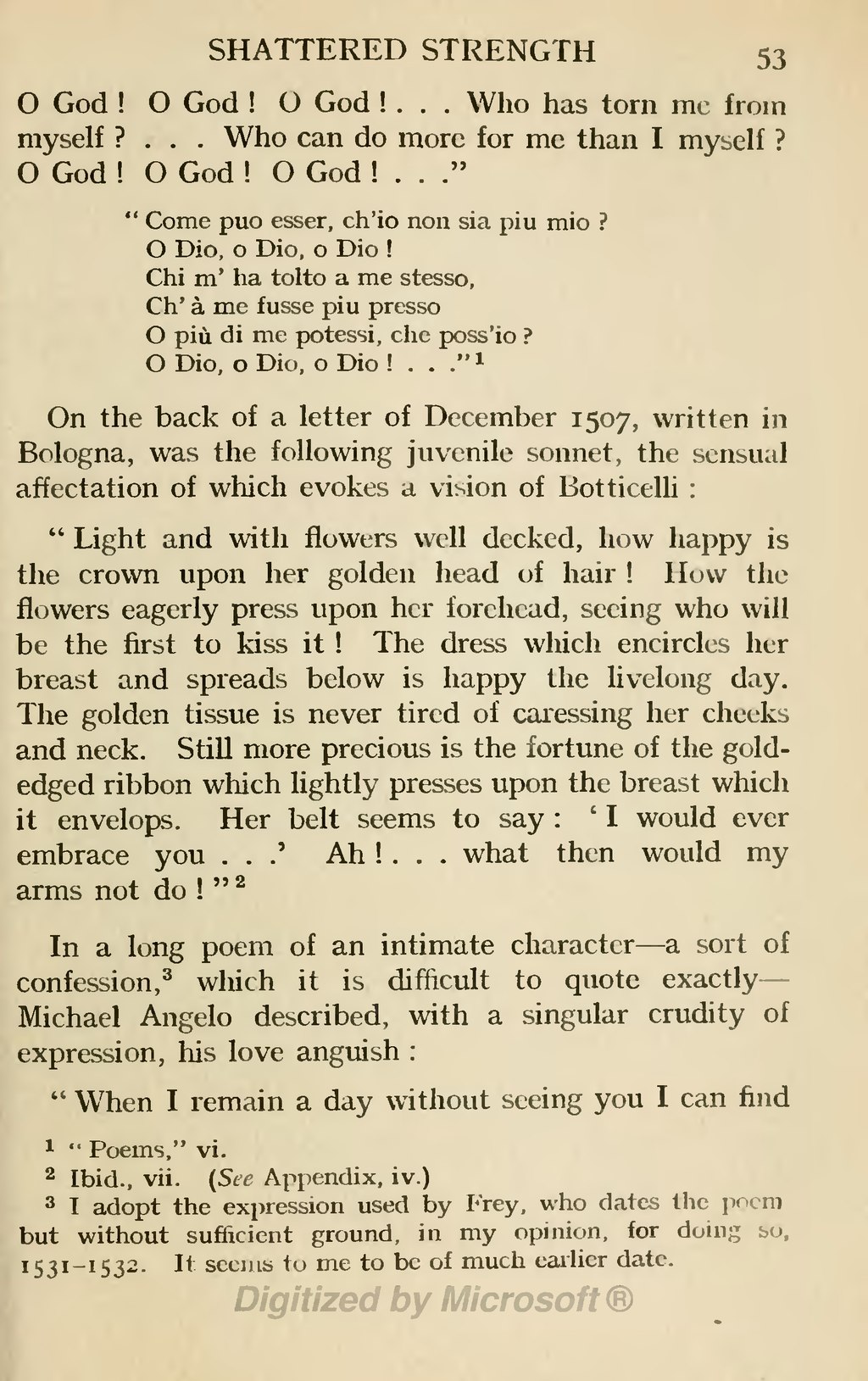O God! O God! O God! . . . Who has torn me from myself? . . . Who can do more for me than I myself? O God! O God! O God! . . ."
"Come puo esser, ch’io non sia piu mio?
O Dio, o Dio, o Dio!
Chi m’ ha tolto a me stesso,
Ch’ à me fusse piu presso
O piè di me potessi, che poss’io?
O Dio, o Dio, o Dio! . . ."[1]
On the back of a letter of December 1507, written in Bologna, was the following juvenile sonnet, the sensual affectation of which evokes a vision of Botticelli:
"Light and with flowers well decked, how happy is the crown upon her golden head of hair! How the flowers eagerly press upon her forehead, seeing who will be the first to kiss it! The dress which encircles her breast and spreads below is happy the livelong day. The golden tissue is never tired of caressing her cheeks and neck. Still more precious is the fortune of the gold-edged ribbon which lightly presses upon the breast which it envelops. Her belt seems to say: 'I would ever embrace you . . .' Ah! . . . what then would my arms not do!"[2]
In a long poem of an intimate character—a sort of confession,[3] which it is difficult to quote exactly—Michael Angelo described, with a singular crudity of expression, his love anguish:
"When I remain a day without seeing you I can find
